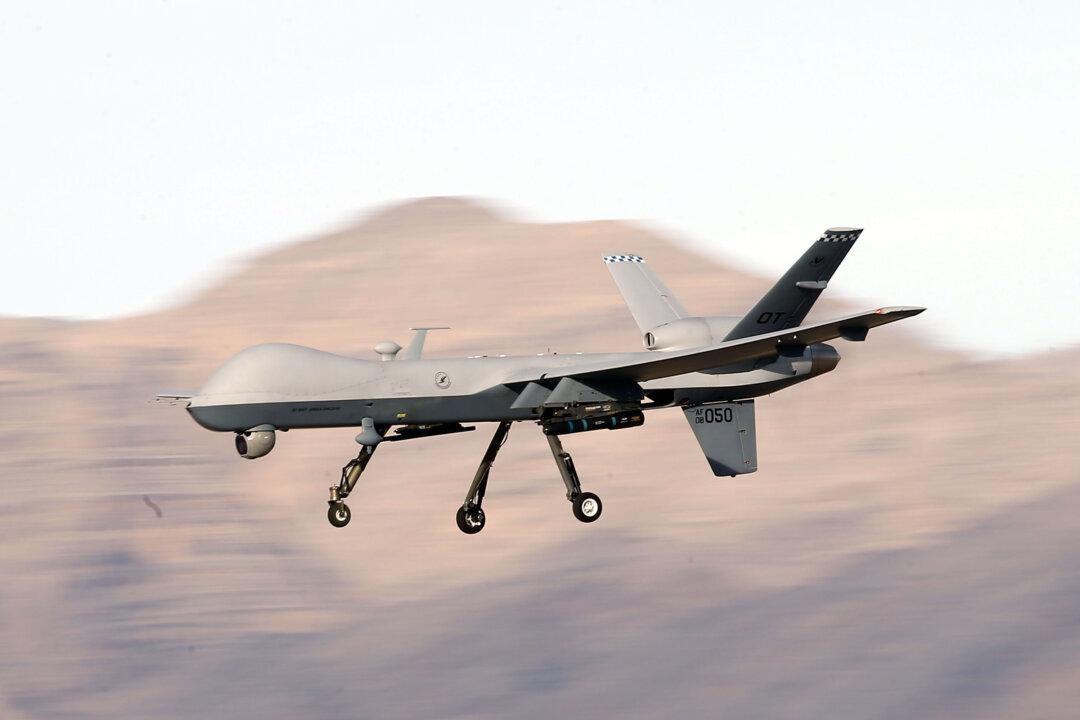Iran attempted to shoot down a U.S. drone arriving at the scene of two fuel tanker attacks in the Gulf of Oman on June 13, according to a Fox News report that cited a senior U.S. official.
Iran fired a missile targeting an American MQ-9 Reaper drone shortly after it arrived, in response to a distress signal from the tanker Front Altair, which was damaged in an attack that Washington blames on Tehran. The missile missed the drone.





